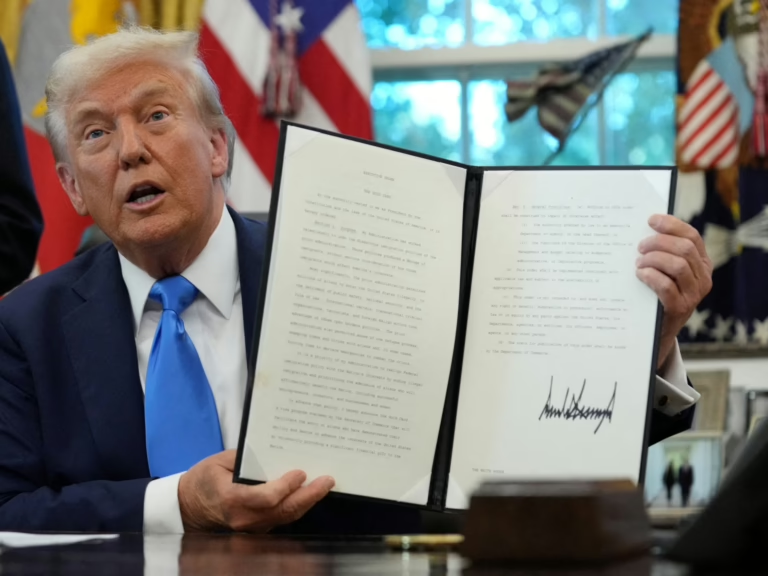In response to concerns sparked by Trump’s directive, the White House has clarified that the $100,000 fee targets only new H-1B visa applicants and is charged per petition.
The U.S. government has provided further explanation regarding its updated H-1B visa regulations, confirming that the newly introduced $100,000 fee for visas-down-48-student-permits-drop-18/” title=”UK Immigration Crackdown Slashes Work … by 48% and Student Permits by 18%”>skilled foreign workers will be assessed on each petition submitted and will not affect those currently holding H-1B visas.
This clarification came a day after U.S. Secretary of Commerce Howard Lutnick suggested the fee would be an annual charge applicable to both new applicants and visa renewals.
Following Lutnick’s remarks, leading technology corporations such as Amazon, Microsoft, Meta, and Alphabet (Google’s parent company) cautioned their H-1B employees to remain in the U.S. or return promptly to avoid complications.
However, White House Press Secretary Karoline Leavitt emphasized that the fee is a one-time payment exclusively for new visa petitions and does not affect existing visa holders’ ability to travel internationally.
“This is not a recurring fee; it applies solely to the initial petition,” she stated.
“Individuals currently holding H-1B visas who are abroad will not be required to pay $100,000 to re-enter the United States. The fee is limited to new visa issuances and does not extend to renewals or current visa holders,” Leavitt added.
The executive order instituting this fee was signed by President Donald Trump on Friday evening and is set to take effect at 12:01 a.m. (04:01 GMT) on Sunday.
The policy is designed to last for one year but may be prolonged if deemed beneficial to U.S. interests by the administration.
H-1B visas enable U.S. companies to employ foreign professionals with specialized expertise-such as researchers, engineers, and software developers-initially for three years, with the possibility of extending to six years.
These visas are heavily utilized by the technology sector and are allocated through a lottery system, with Indian nationals comprising nearly 75% of recipients.
Opponents argue that the program disadvantages American workers by attracting overseas talent willing to accept salaries as low as $60,000 annually, significantly less than the $100,000-plus typically earned by U.S. tech employees.
India’s Ministry of External Affairs commented on Saturday that the new policy “is under thorough review by all relevant parties, including Indian industry.” The ministry also cautioned that “this measure could cause humanitarian challenges by disrupting families,” expressing hope that U.S. authorities will address these issues appropriately.
The U.S. Chamber of Commerce voiced similar concerns.
“We are worried about the consequences for workers, their families, and American businesses,” the organization stated. “We are collaborating with the Administration and our members to fully assess the impact and determine the best course of action.”
On the widely used Chinese social media platform Rednote, numerous H-1B visa holders shared accounts of hastily returning to the U.S.-some mere hours after arriving abroad-out of fear of incurring the new fee.
Reports from the San Francisco Chronicle indicated that some travelers who had already boarded flights to leave the country on Friday disembarked amid concerns they might be barred from re-entry.
Immigration attorney Allen Orr, chair of the National Bar Association’s immigration committee, told Al Jazeera that the directive has generated “widespread confusion.”
He explained that workers with newly issued or renewed H-1B visas who were outside the U.S. were advised to delay travel, resulting in postponed job start dates and financial losses due to canceled flights and housing arrangements.
Orr further remarked that the policy sends a discouraging signal to highly skilled professionals abroad.
“If this fee remains in place next year, a $100,000 charge for an H-1B worker effectively prices them out of the market, causing many positions to remain offshore,” he said.
“The U.S. has long benefited from attracting global talent, effectively making the country a hub for innovation. Restricting this flow undermines our competitive edge and damages our reputation,” he added.

















